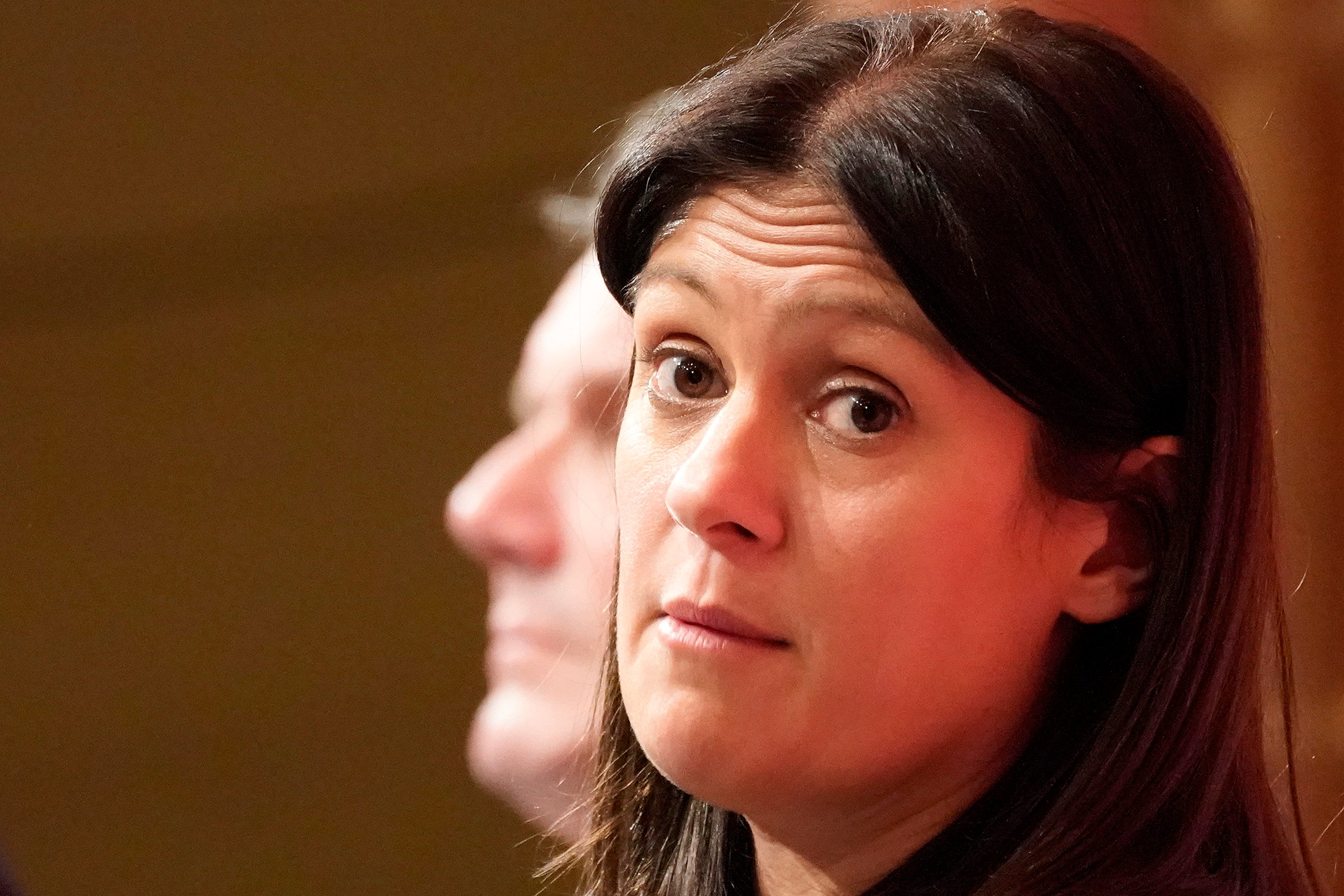Tony Blair’s ‘uncritical embrace’ of globalisation damaged communities and cost Labour votes, Lisa Nandy says
Shadow foreign secretary Lisa Nandy says places like her constituency were ‘stripped of their vitality, their purpose, their inheritance’

Your support helps us to tell the story
From reproductive rights to climate change to Big Tech, The Independent is on the ground when the story is developing. Whether it's investigating the financials of Elon Musk's pro-Trump PAC or producing our latest documentary, 'The A Word', which shines a light on the American women fighting for reproductive rights, we know how important it is to parse out the facts from the messaging.
At such a critical moment in US history, we need reporters on the ground. Your donation allows us to keep sending journalists to speak to both sides of the story.
The Independent is trusted by Americans across the entire political spectrum. And unlike many other quality news outlets, we choose not to lock Americans out of our reporting and analysis with paywalls. We believe quality journalism should be available to everyone, paid for by those who can afford it.
Your support makes all the difference.Tony Blair's approach to globalisation and capitalism cost Labour votes and damaged communities, a top member of Keir Starmer's team has said.
In a speech on Wednesday shadow foreign secretary Lisa Nandy said places like her constituency of Wigan had been "stripped of their vitality, their purpose, their inheritance" by free markets.
And she promised a new approach from Labour that would include "a rejection of the uncritical embrace of economic globalisation" and protect workers from unfair competition abroad.
Taking aim at seats won by the Tories at the 2019 election, the shadow foreign secretary said people in towns like Darlington or Stockton were being outcompeted by workers in China earning a pittance.
And she accused the government of ignoring these problems and instead using them as a political weapon to attack Labour.
Read more:
- Race report news – live: Investigation branded an ‘insult’
- ‘Institutional racism doesn’t exist,’ government’s race commission suggests in landmark report
- One in four small export businesses have stopped selling to the EU, poll finds
- David Lammy responds to woman who tells him he can’t be African-Caribbean and English
Ms Nandy said the Tory governments of the 1980s had "handed so much power to capital that by the late 90s it had convinced the Labour government that this model of globalisation was not a choice but a fate".
Quoting directly from a landmark 2001 speech by Tony Blair, she said: "It ushered in an era of flexible labour markets and deregulation 'to untie the hands of business' as the then Prime Minister described it in his Chicago speech.
"In a sink or swim world, those who were not 'swift to adapt, slow to complain, open, willing and able to change' found themselves on the wrong side of history.
"And this is how places like ... Wigan in Lancashire, known globally for Orwell’s Road to Wigan Pier, came to be stripped of their vitality, their purpose, their inheritance - seen no longer as contributors, but as the problem itself.
"Their wages too high, their demands too many. So the work was transferred to countries where this 'problem' was removed and the dignity of labour became a private not political concern with questions of ethics handed to the market to decide.
"Less than two decades later on both sides of the Atlantic, the people in those places delivered their verdict on that approach."
Turning her fire on the Tories, the shadow foreign secretary said: "Instead of healing these wounds the Government has sought to weaponise them, based on an imagined idea of working-class communities that is utterly at odds with the views and aspirations of those who live in them," she said.
"And in the end I think this is the fatal flaw in the Government’s approach. At heart I think they believe that foreign policy has absolutely nothing to do with people in Darlington or Selcoats.
"But our relationship with China is more central to the factory operative earning £8.72 an hour in Stockton than any high street grant. And for all the faux flag waving there is no patriotic vision for those people or places.
"Instead of good jobs and fair trade we get wave machines to deter asylum seekers, pork barrel grant schemes handed out to high streets by politicians who never leave Whitehall, and ministers who wrap themselves in flags and berate the BBC for failing to sufficiently do the same."
Speaking in at question and answer session after the speech, Ms Nandy added: "Internationalism is in our DNA in the Labour Party, the test is whether it's working for people here as well."
Ms Nandy also used the speech to set out how patriotism would help the UK "rediscover a confident, outward-looking approach to the world" and to state that "for too long, foreign policy has been the preserve of the political classes".
“The world beyond our shores, and our ability to mould and shape it, affects the lives of people at home to an extraordinary degree,” Nandy said. “The challenges we face today demand more than empty slogans.”
Join our commenting forum
Join thought-provoking conversations, follow other Independent readers and see their replies
Comments